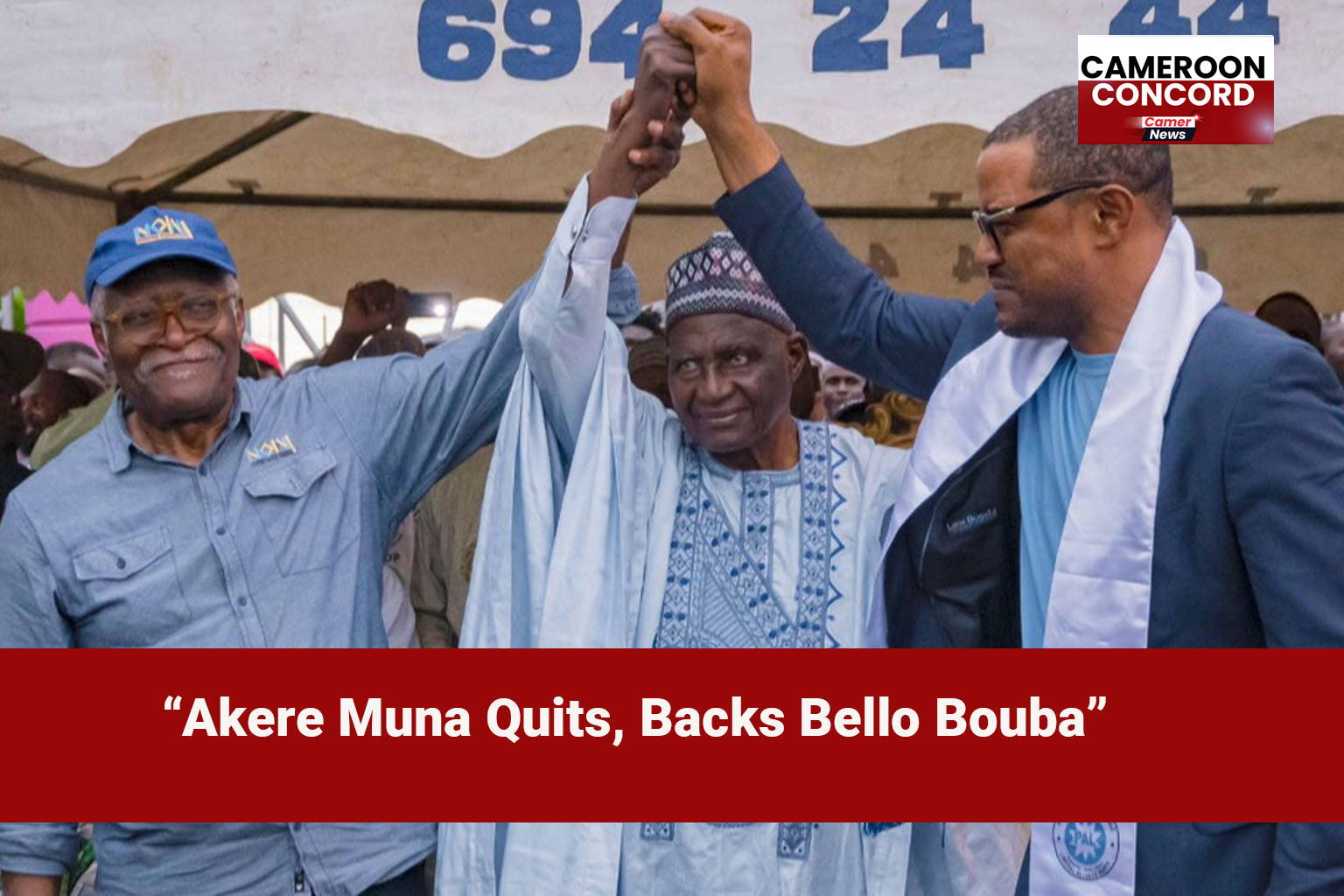This move comes barely two weeks before the polls, shaking the political landscape. It makes Muna the second candidate, after Ateki Seta Caxton, to align with Bello Bouba. To supporters, it signals the beginnings of an opposition bloc; to critics, it is yet another example of the fragmentation and opportunism that has plagued Cameroon’s opposition for decades.
Background: Who is Akere Muna?
Akere Muna is no stranger to Cameroon’s reformist camp. A respected lawyer, anti-corruption advocate, and former vice president of Transparency International, he entered politics promising to challenge the entrenched system. In 2018, however, he stunned supporters by abruptly abandoning his presidential candidacy at the last minute to back Maurice Kamto—a decision that sowed distrust and disappointment.
For many, 2025 was a chance for redemption. Muna ran on a platform of clean governance, accountability, and renewal. His message resonated with parts of the urban middle class and diaspora. But his sudden endorsement of Bello Bouba has reopened old wounds, reviving doubts about his consistency and motives.
Who is Bello Bouba?
Bello Bouba Maigari, a veteran politician and leader of the UNDP, once served as Prime Minister under Paul Biya in the 1980s before falling out with the regime. Over the decades, however, his critics argue he drifted closer to the ruling CPDM, accepting ministerial positions and losing credibility as a genuine alternative. At 77, his age and long association with Biya raise questions about whether he represents real change or merely a recycling of the old guard.
Charles Mambo’s Op-Ed Critique
Political commentator Charles Mambo minced no words:
“By any sober measure, Akere Muna’s manoeuvre reveals a profound misjudgment. Instead of building a broad opposition coalition, he has chosen to slip into Bello Bouba’s orbit—a man whose relevance has steadily declined. This risks splintering the opposition, nourishing precisely the division that allows the CPDM to cling to power.”
Mambo argued that Muna traded principle for proximity to power, hoping to position himself as Bello Bouba’s heir apparent. “This is not leadership,” he wrote, “but the repetition of a confounding pattern that undermines public trust.”
What Does It Mean for the 2025 Elections?
The presidential election looms as a test of whether Cameroon’s fractured opposition can present a credible alternative to Paul Biya’s 43-year rule. The electoral system requires only a simple plurality—meaning that every divided ballot helps the ruling CPDM.
Muna’s decision to back Bello Bouba may strengthen the latter’s northern base, but it weakens the chances of a broader coalition. Many opposition activists had looked to Issa Tchiroma as the figure most capable of uniting northern voters while reaching across regions. Instead, alliances are forming late, incoherently, and around aging leaders.
With Cabral Libii, Joshua Osih, Serge Espoir Matomba, and others still in the race, the opposition vote risks splintering into irrelevance. Analysts warn that, once again, Biya’s CPDM may emerge victorious not by popular enthusiasm but by default, thanks to a divided field.
Conclusion
For Cameroonians yearning for change, Akere Muna’s move is a bitter pill. What might have been a unifying candidacy now reads as another chapter in a story of missed opportunities. Whether his endorsement bolsters Bello Bouba or backfires, one thing is certain: Cameroon’s opposition remains caught in the cycle of fragmentation that has kept the ruling party in power for decades.
As one activist in Douala put it: “We needed a coalition for change. What we got is confusion.”]

